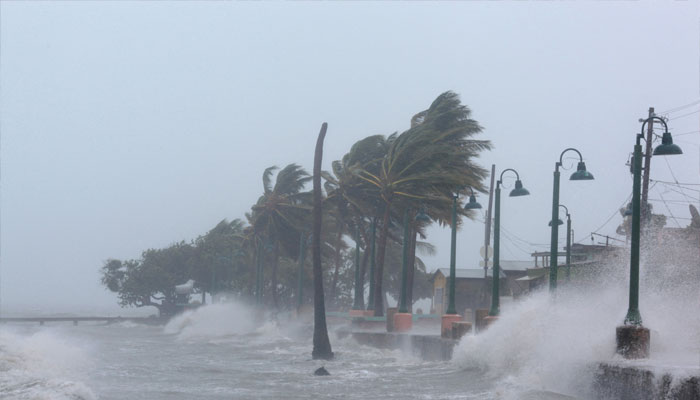Climate change threatens low-lying Caribbean hospitals: UN
WASHINGTON: Tens of millions of people living in coastal areas around the Caribbean and Latin America face imminent risks to healthcare and key infrastructure as climate change brings more severe weather events, according to a United Nations report on Tuesday.
According to the report by the UN sexual and reproductive health agency (UNFPA), some 41 million people - 6 percent of all people living in the overall region - live in low-lying coastal areas at risk of storm surges, flooding and hurricanes. In the Caribbean alone, this represents some 17 percent.
“Behind our modeling of exposed coastal populations are millions of people – including poor and vulnerable Afrodescendent and indigenous women and girls – who are the least responsible for the climate crisis but are paying a heavy price when it comes to their sexual and reproductive health and rights,” said UNFPA Executive Director Natalia Kanem.
“Climate change is not gender neutral and exacerbates existing inequalities,” she said. The report identified over 1,400 key hospitals located in low-lying coastal areas, using satellite imagery and population estimates to identify communities most at risk.
-
 Chloe Kim Set For Historic Halfpipe Gold Showdown At Milano Cortina
Chloe Kim Set For Historic Halfpipe Gold Showdown At Milano Cortina -
 Brooklyn Beckham Gives Cold Response To Cruz's Olive Branch Amid Feud
Brooklyn Beckham Gives Cold Response To Cruz's Olive Branch Amid Feud -
 Woman Arrested Months After Allegedly Staging Husband’s Murder As Suicide
Woman Arrested Months After Allegedly Staging Husband’s Murder As Suicide -
 Senior US Politician Makes Formal Accusation Against Andrew As Woman Under Him Is Sex Trafficked
Senior US Politician Makes Formal Accusation Against Andrew As Woman Under Him Is Sex Trafficked -
 X Product Head Warns AI Spam Can Make IMessage And Gmail Unusable
X Product Head Warns AI Spam Can Make IMessage And Gmail Unusable -
 Tyler Childers, Wife Senora May Expecting Second Baby
Tyler Childers, Wife Senora May Expecting Second Baby -
 ‘Smiling Electrons’ Discovered In Earth’s Magnetosphere In Rare Space Breakthrough
‘Smiling Electrons’ Discovered In Earth’s Magnetosphere In Rare Space Breakthrough -
 Cardi B Airs Chilling Threat To Authorities Over Arresting Her Fans
Cardi B Airs Chilling Threat To Authorities Over Arresting Her Fans -
 Bangladesh Sees High Turnout In Landmark National Election
Bangladesh Sees High Turnout In Landmark National Election -
 Lufthansa Cancels Hundreds Of Flights Amid Pilot And Cabin Crew Strike
Lufthansa Cancels Hundreds Of Flights Amid Pilot And Cabin Crew Strike -
 Video: Prince Harry Tears Up Talking Of His Court Case & Children: ‘Don’t Feel Shame Even If A Judge Makes Demands'
Video: Prince Harry Tears Up Talking Of His Court Case & Children: ‘Don’t Feel Shame Even If A Judge Makes Demands' -
 King Charles Issues New Statement For ‘carers’ Two Days After Promising To Support Police Action Against Andrew
King Charles Issues New Statement For ‘carers’ Two Days After Promising To Support Police Action Against Andrew -
 Gene Simmons Makes Major Claim Against Rock & Roll Hall Of Fame
Gene Simmons Makes Major Claim Against Rock & Roll Hall Of Fame -
 Vladyslav Heraskevych Disqualified From Winter Olympics 2026 Over Helmet Controversy
Vladyslav Heraskevych Disqualified From Winter Olympics 2026 Over Helmet Controversy -
 Late James Van Der Beek Inspires Bowel Cancer Awareness Post Death
Late James Van Der Beek Inspires Bowel Cancer Awareness Post Death -
 ByteDance’s New AI Video Model ‘Seedance 2.0’ Goes Viral
ByteDance’s New AI Video Model ‘Seedance 2.0’ Goes Viral




